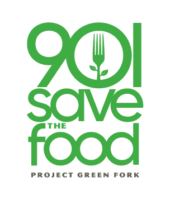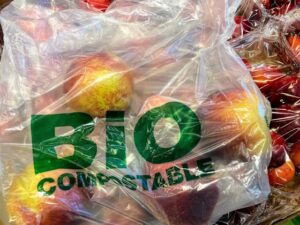In today’s fast-paced world, where convenience often takes precedence over sustainability, it’s essential to recognize the significant impact even the smallest changes in our daily habits can make. Nowhere is this more evident than in our kitchens, where simple adjustments can lead to substantial reductions in food waste and environmental impact.
Approximately 1.4 million tons of food waste find their way into Tennessee landfills each year, with a staggering 200,000 tons attributed to Shelby County alone. These numbers paint a stark picture of the scale of food waste in our communities and highlight the urgent need for action.
Emerging as the primary contributors to this alarming trend, American households collectively throw away an average of 6.2 cups of food per week. Among the leading causes of this waste are spoiled leftovers and overreliance on date labels. However, if we all take steps to make small changes in our kitchen routines, we can significantly reduce this waste.
One of the most effective strategies for combating food waste at home is proper meal planning. By thoughtfully planning meals and purchasing only what is needed, households can minimize the risk of excess food spoiling before it can be consumed. Additionally, incorporating leftovers into subsequent meals can help stretch ingredients further and reduce the likelihood of food going to waste.
In addition to curbing food waste, thoughtful meal planning can also have ripple effects on the broader food system. By reducing the amount of food households purchase, there is a corresponding decrease in demand within the food supply chain. This shift in consumer behavior sends signals to producers and retailers, prompting them to adjust their production and stocking practices accordingly, ultimately leading to less food being produced and potentially wasted.
Another area where small changes can yield substantial results is in reevaluating our reliance on date labels. While date labels are often interpreted as indicators of food safety, they are more accurately a reflection of a product’s quality. In fact, with the exception of baby formula, the FDA does not have any regulations on perishable dates. By understanding the distinction between “best by” and “use by” dates, consumers can feel more confident in using their judgment to determine the freshness and safety of food items, thus reducing unnecessary discards.
Additionally, embracing the practice of proper food storage can extend the shelf life of perishable items and minimize the risk of premature spoilage. Simple measures such as storing fruits and vegetables in breathable containers or wrapping them in reusable beeswax wraps can help maintain quality and reduce the need for frequent replacements. It can be helpful to organize your fridge’s contents based on the freshness of the food. For example, placing produce that will wilt more quickly towards the front and planning to use it in meals first will help keep that item at the front of mind.
Composting presents another valuable opportunity for households to divert organic waste from landfills and contribute to a more sustainable food system. While composting is not necessarily the “go-to,” composting food scraps and other organic materials, households can enrich soil health, reduce greenhouse gas emissions, and minimize the burden on landfill infrastructure.
Beyond individual actions, communities and policymakers also play a crucial role in addressing food waste. Supporting initiatives that promote food recovery and redistribution, such as community food banks and donation programs, can help ensure that surplus food reaches those in need rather than ending up in landfills.
Building sustainable habits in the kitchen is not only beneficial for the environment but also for our wallets and communities. By making small changes to our daily routines, such as meal planning, reevaluating date labels, practicing proper food storage, and embracing composting, we can collectively work towards reducing food waste and creating a more sustainable future for all.




